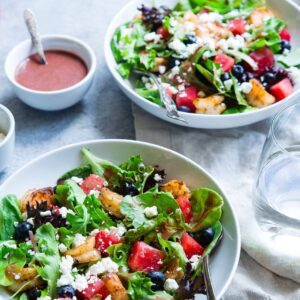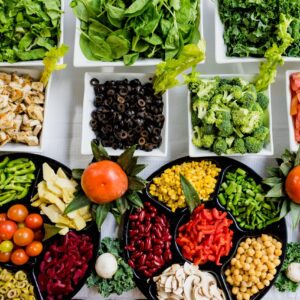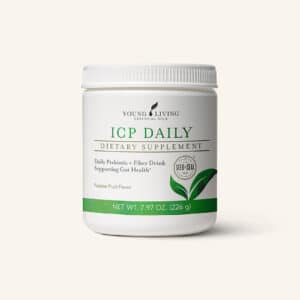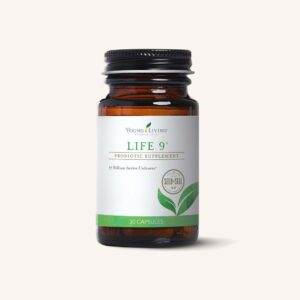Diets that reduce inflammation
Laying in bed at night wondering why you feel so old when you really aren’t? Got achy joints, tension, low energy, unexpected weight gain and many minor, nagging concerns? Or is it digestive distress, insulin resistance, or inflammatory menopause? Either way, it is past time just to treat your symptoms.
Diets that reduce inflammation get to one of the root causes of modern, chronic conditions. Read about 10 anti-inflammatory diets here.

Chronic Inflammation
Chronic inflammation is at the root of many of these modern ailments. We have known for a long time that chronic inflammation plays a role in allergic issues like asthma and arthritis. And research now shows most chronic conditions may result from inflammation in the body.
Inflammation is your body’s normal, healthy attempt to defend itself against injury or other harmful stimuli. When this happens, your body sends in troops to fight the battle. As a result, you get increased inflammation. This type of acute inflammation usually results in body surface redness, swelling, and pain. Think of a cut and how it swells and reddens.
But when inflammation becomes chronic, always turned up and waging war, this is when trouble starts. With this, your immune system is activated and battling for an extended period of time. And this chronic, low-level inflammation at the cellular level can even develop without pain and lead to a lifetime of ill health. As a result, health conditions related to chronic inflammation are at an all-time high. In fact, over 50% of all Americans have been diagnosed with at least one chronic disease.
Reducing Inflammation Lies in Your Gut
Your gut, your digestive system, is the foundation for your wellness and immune system. Surprisingly, it houses the highest concentration of immune cells in your entire body. And this is one reason why your gut’s health can very often be the culprit for what ails you (beyond the bloating, diarrhea and constipation commonly associated with digestion.)
Your gut microbiome, the various microbes in your digestive system, plays a vital role in disease prevention.
Recently, studies have shown that specific bacterial populations are associated with increased inflammation while others reduce inflammation.
Inflammation and gut health have a symbiotic relationship. On one hand poor gut health can lead to inflammation in many areas of your body, and on the other, chronic inflammation can worsen your gut’s health. But, the good news is that chronic inflammation is reduced or even reversed with anti-inflammatory lifestyle habits and an inflammatory-reducing diet. So, find relief in knowing you can create a healthy gut, reduce the severity of your chronic inflammation, and boost your overall well-being!
Eat an Inflammatory Reducing Diet

The Standard American Diet (SAD) is full of many inflammatory foods. So, it’s not surprising that it leads to many negative health conditions. But, anti-inflammatory diets can lower overall levels of inflammation in your body and support the health of your gut microbiome.
You may be wondering what makes a particular food anti-inflammatory. And the answer lies within the nutrients and phytonutrients that each food contains. For example, anti-oxidants, such as the vitamin C found in strawberries and red bell peppers, protect cells from damage.
Download your list of the Top 20 Anti-Inflammatory Superfoods at ChristieKelemen.com/Superfoods “5 Superfood Recipes and Top 20 list of Superfoods”.
What is the Basic Diet to Reduce Inflammation?
In order to reduce inflammation, eat a healthy whole food diet full of vegetables, fruits, prebiotics and probiotics. And be sure to include plenty of nutrient-dense, anti-inflammatory foods such as dark leafy greens, omega-3-rich fish, turmeric and ginger. Also, eat prebiotic foods such as onions and garlic, or take a prebiotic. And add fermented foods, such as yogurt, or take a probiotic.
Get a tremendous prebiotic and probiotic in my “Improve Gut Health Bundle” at myyl.com/christie-kelemen “Health Supplements through Young Living and Christie Kelemen”.
In addition to the list above of what to add to your diet, also avoid or reduce your intake of processed foods, sugar and excess alcohol. Other common inflammatory foods are fried foods, sweetened beverages, trans fats and hydrogenated oils.
Swaps to Reduce Your Inflammation
A few simple food swaps will do a lot to reduce inflammation, as anti-inflammatory foods can be a powerful force in soothing your inflammation. To do this, crowd out inflammatory foods with healthier anti-inflammatory foods, like applying aloe to soothe a sunburn rather than rubbing sandpaper on it.
You can use these ideas below to experiment and find foods you enjoy.
1. Add blueberries, raspberries or strawberries to your yogurt instead of sugar sweetened yogurt.
2. Toss broccoli into your morning eggs instead of eating them plain.
3. Add bone broth to your soups and stews instead of a bouillon cube.
4. Add flaxseed to your smoothies instead of a sweetener.
5. Try green tea instead of soda for an energizing drink.
6. Add fresh herbs to your salad instead of croutons.
7. Order a salmon dish at a restaurant instead of a hamburger.
8. Top your stir-fry with crumbled walnuts instead of extra rice.
As you add more anti-inflammatory foods to your diet, remember it is important to have fun and not focus on perfection, so you are more likely to stick to it.
Get more information on spices that are anti-inflammatory by reading Spices that are Anti-Inflammatory.
10 Inflammatory Reducing, Gut-Healing Diets

1. Paleo Diet
The Paleolithic Diet rejects modern foods, which alone reduces inflammation. Many people start a Paleo diet seeking improved health, weight loss and end up with reduced inflammation as well.
The Paleo diet believes that sticking to the food your cave-dwelling ancestors would have eaten leads to optimal health. Therefore, this includes organic and grass-fed meat, fish, eggs, limited fruits, vegetables, nuts, and healthy fats such as coconut oil, avocado, and ghee and olives. So, this is a relatively low-carb diet. Also, vigorous exercise and vitamin D from the sun are encouraged.
Related diet: The Pegan Diet by Mark Hyman, MD.
Dr. Hyman combines the vegan and paleo diets. Therefore, this diet is primarily plant-based with some grass-fed, organic meat, poultry, fish, and eggs.
Foods to avoid on the Paleo Diet:
Grains, dairy (usually), processed food, sugars
Pros: encourages whole, organic foods is high in nutrients and fiber and may stabilize blood sugar
Cons: cost and does not work well for vegans or vegetarians
2. Keto Diet
The Ketogenic Diet uses ketones, a byproduct of fat metabolism, for fuel instead of glucose. So, the diet is very high in fat with the remaining calories from low-carb vegetables and protein. Reducing insulin spikes helps reduce inflammation.
Foods to avoid on the Keto Diet:
Grains, beans, high-carb vegetables and fruits, processed food, sugars
Pros: restricts sugar intake and reduces insulin spikes
Cons: may cause extreme fatigue in the beginning, can be difficult to maintain and may cause nutrient deficiencies
3. Anti-Candida Diet
After an adverse life-changing event led me to be overstressed and to eat too many carbs, the Candida (which is a yeast that lives in all of our bodies) in my gut became overgrown. I had great success with this diet (which I plan to share in detail in the future.)
The Anti-Candida diet is a low carbohydrate, anti-inflammatory diet, though not as low as the Keto diet. It is similar to the Paleo diet but more restrictive. And the goal of the diet is to cut down on the overgrowth of Candida that inhabits the gut flora in the mouth and intestines of every human. This overgrowth can cause fatigue, brain fog, mood changes and digestive issues and is usually a result of stress, antibiotics, or excessive sugar and carbohydrate intake.
Foods to avoid on the Anti-Candida Diet:
Processed foods, including processed meats, high-sugar fruit, legumes, most grains, high-lactose dairy, sugar and vinegar
Pros: a natural, non-drug approach to fight Candida, based on whole, organic foods, avoids insulin spikes
Cons: takes time, may be difficult to maintain
4. The Autoimmune Protocol (AIP)
The AIP diet is a modification of the Paleo diet specifically designed to reduce inflammation, particularly for autoimmune conditions. Though it is similar to the Paleo diet, it also excludes several Paleo foods such as nuts, seeds, eggs and some vegetables.
Food to avoid on the AIP Diet:
Grains, dairy, processed food, sugars, eggs, legumes, nightshade vegetables, nuts and seeds
Pros: can be very effective in reducing inflammation
Cons: restrictive and difficult to follow
5. Specific Carbohydrate Diet
The Specific Carbohydrate Diet seeks only to include specific types of easily digestible, healthy carbohydrates to allow the gut to a chance heal. It is for those with diagnosed gut diseases such as Crohn’s disease, ulcerative colitis, celiac disease, diverticulitis, cystic fibrosis, etc. or other gut distress to reduce inflammation.
Foods to avoid:
Sugars, processed foods, grains, potatoes, high-lactose dairy, seeds, and some legumes
Pros: may heal digestive issues and increase overall wellbeing
Cons: restrictive and hard to stick to
6. GAPS
After a brief stint on the Specific Carbohydrate Diet, I used the GAPS diet to heal my son, as a young baby, of multiple food allergies and severe eczema. At the time, testing showed he was allergic to everything they tested for, except strawberries. So this meant he could not eat wheat, dairy, avocados, soy, egg yolks, egg whites, and bananas.
Now that my son is in elementary school, he only has a few dry patches on his skin and only needs to avoid nuts and shrimp. Talk about a complete upgrade in the experience of life.
The GAPS Diet is an extension of the Specific Carbohydrate Diet, it is for people who suffer from “Gut and Psychology Syndrome” (GAPS)- gut conditions or brain conditions, such as autism, ADD/ADHD, etc.
In addition to avoiding possible inflammatory foods, GAPS recommends probiotics, essential fatty acids, digestive enzymes, specific vitamins and detoxification protocols.
Foods to avoid: grains, starchy vegetables, sugars, dairy, legumes, and processed foods
Pros: emphasizes whole foods, may heal lifetime ailments and can be used long term
Cons: very restrictive, difficult to follow
7. Low FODMAP
The Low FODMAP Diet is for people with gut distress when digesting certain foods. Therefore, is it used to treat those with Irritable Bowel Syndrome (IBS) or Small Intestinal Bacteria Overgrowth (SIBO) to reduce symptoms and inflammation. FODMAPs stands for the foods that are eliminated on this diet: Fermentable Oligosaccharides, Disaccharides, Monosaccharides, and Polyols. These are all types of sugars, starches or short-chain carbohydrates.
Foods to avoid:
- FO – Wheat, garlic, onion, inulin, legumes
- D – Lactose
- M – Honey, apples, mangoes, pear, watermelon, high fructose corn syrup
- And
- P – apples, avocado, cherries, nectarines, sugar alcohols.
Pros: quickly can eliminate symptoms
Cons: difficult to follow and may not be healthy long term (as much fiber is excluded)
8. Dr. Weil’s Anti-Inflammatory Diet
Dr. Weil’s Diet is a general anti-inflammatory diet intended to be a new lifestyle. It focuses on whole, nutrient-dense foods that help reduce inflammation.
Foods to avoid: certain fats and proteins as well as processed foods and most sugar
Pros: full of inflammatory reducing foods, easy-to-follow guides
Cons: may be too high in carbohydrates for some
9. Mediterranean Diet
The Mediterranean diet is a general inflammatory reducing diet. There are variations but typically, the diet is high in vegetables, fruits, nuts, legumes, whole grains, herbs, spices, seafood, and extra-virgin olive oil.
Foods to avoid: processed foods and meats, refined grains and oils
Pros: not as restrictive as some diets
Cons: may be too high in carbohydrates for some
10. Weston A. Price Foundation Diet
I saved my favorite for last. 😁
The Weston A. Price Foundation Diet is based on the traditional diets of the proven healthy populations Dr. Price researched. The broad guideline is to eat whole, unprocessed foods such as pasture-raised meat, poultry, dairy, eggs, wild fish, cultured products, traditional fats and oils, organic fruits and vegetables, sprouted whole grains, legumes, nuts, and bone broth.
Also, the diet recommends getting enough sleep, sunlight, exercise, and having a positive mindset to also reduce inflammation.
Foods to avoid:
Sugar, processed foods and oils, refined grains, commercial meat, poultry, eggs, and dairy
Pros: a long-term lifestyle rather than an emergency diet, less restrictive than many diets
Cons: cost
To read more about my experience with the Weston A. Price diet check out “What is the Healthiest Diet?”.
Summary
Diets that reduce inflammation get to one of the root causes of modern, chronic conditions. 10 anti-inflammatory diets are described here. But when inflammation becomes chronic, always turned up and waging war, this is when trouble starts. With this, your immune system is activated and battling for an extended period of time.
Your gut, your digestive system, is the foundation for your wellness and immune system. Surprisingly, it houses the highest concentration of immune cells in your entire body. Healing your gut goes a long way to healing your inflammation.
In general, eat a healthy whole food diet full of vegetables, fruits, prebiotics and probiotics. And be sure to include plenty of nutrient-dense, anti-inflammatory foods such as dark leafy greens, omega-3-rich fish, turmeric and ginger. Also, eat prebiotic foods such as onions and garlic, or take a prebiotic. And add fermented foods, such as yogurt, or take a probiotic.
This blog post is for informational and educational purposes only. It is not intended to treat any health condition or to be prescriptive for anyone. Always be sure to work with your healthcare practitioner before making any changes.
Sign up for The Easy Anti-Inflammatory Newsletter and get your 9 Healthier Habits for a Healthy You Guide by entering your email below:








